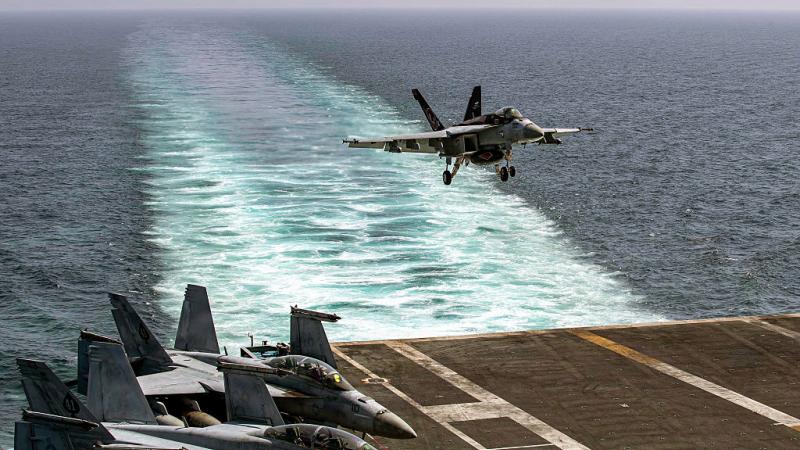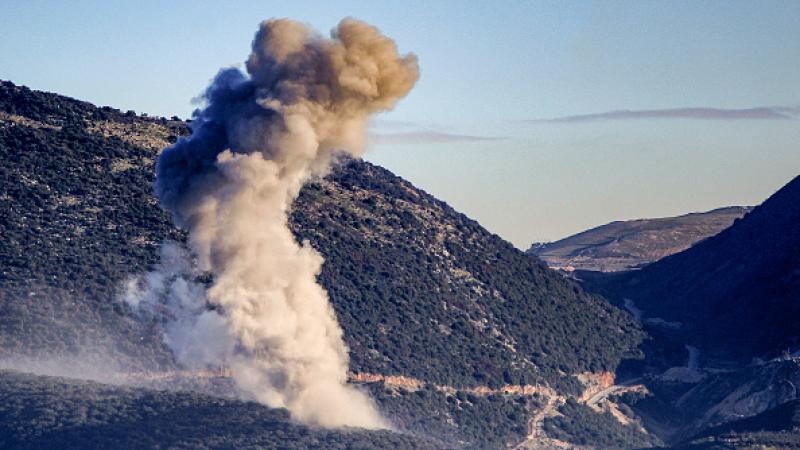What really happened to Extortion 17? New film probes 2011 helicopter crash that killed Navy SEALs
The documentary, "Fallen Angel," coincides with the 10th anniversary of the deadly incident.
On the tenth anniversary of the deadliest helicopter loss in the history of U.S. special operations, a new documentary examines the unresolved questions about what really happened aboard the CH-47 whose callsign was Extortion 17.
"The families of the fallen want to know why their loves ones were lost," the film's director, Stephen Spivey, told Just the News. "They deserve answers. The American people deserve answers."
Spivey hopes that the documentary, "Fallen Angel," will honor the 30 Americans — most of them Navy SEALs — who died, and will prompt Americans to demand an investigation.
The CH-47 Chinook military helicopter went down in the Tangi Valley of Afghanistan on Aug. 6, 2011. The helicopter's mission was to ferry reinforcements for an already treacherous mission. The 40,000 pound aircraft carried 30 Americans, eight Afghans, and one military working dog.
One Pentagon official in 2014 described for Congress how the crash unfolded.
"Tragically, as Extortion 17 was nearing its landing zone, Taliban fighters, hidden in a building, fired two or three rocket-propelled grenades at close range, leaving the pilot no chance to perform evasive maneuvers," said Garry Reid, who served in the office of Special Operations and Low Intensity Conflict. "One rocket struck a rotor blade, causing the aircraft to crash almost instantly."
Everyone aboard was killed, including the dog.
The recovery operation commenced immediately, and spanned four days. The bodies of the fallen and most of the wreckage was recovered.
The crash sent shock waves throughout U.S. special operations. The SEAL Team 6 community was devastated.
"The downing of Extortion 17 was a catastrophic and unprecedented tragedy for our nation," Reid testified.
When the shock subsided, questions arose — and persisted. Where was the Chinook's black box cockpit recorder? According to Reid, the aircraft did not have such a flight data recorder. Others claimed that it did, and that the vital piece of equipment had been washed away in a flash flood. Additional questions raised increasingly sinister scenarios. Were bullets found in the SEALs' bodies? What did the autopsies reveal about how the fallen had died?
The trailer to "Fallen Angel" delves into those questions and others, including, was the fire control officer of a nearby AC-130 gunship denied permission to engage the enemy? And if so, why?
"Rules of engagement play a big role in the film," Spivey said. "That's a very big part of it. The documentary covers the inherent dangers when the ROE move too far from the law of war."
Aside from examining troubling mysteries, Spivey said, the documentary pays tribute to those who lost their lives that night in Afghanistan.
"We must honor the fallen," Spivey said. "We need to remember their names and stand for what they fought for."
Part of that process is to insist that American warriors are supported while in the thick of combat.
"If we are going to train our military to defend freedom, we must trust it to accomplish the mission, within the law of war," Spivey said. "Poor rules of engagement get our men and women killed. It's time for a change."
In terms of Extortion 17, the filmmaker said, the military should continue to look into what happened aboard the ill-fated aircraft. Investigators should look inside conex containers; inspect radiographs; and examine the remaining weapons from the mission.
"People feel unsettled by what happened," Spivey said. "It merits examination. It's heartbreaking for the families, and frustrating for the Department of Defense."
The trailer and full version of "Fallen Angel" can be viewed here.














